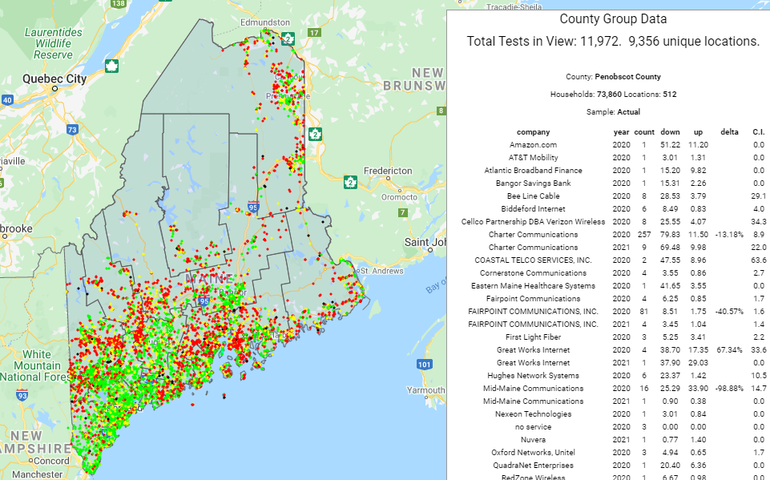Gov. Janet Mills’ proposal to add $1.8 million to Maine’s supplemental budget, earmarked for mapping and technical support, is being hailed by business and development leaders as necessary to help the state recover from the pandemic, as well as bolster the state’s economic growth.
The supplemental budget money will help pinpoint geographic areas in need of broadband access and technical assistance, which has become a focus of the Maine Broadband Coalition, a group of more than 100 business and organizations focused on broadband expansion and access.
The proposal is part of Mill’s supplemental budget, announced Friday along with the $8.4 billion biennial 2022-23 budget.
Finding out where better broadband is needed is vital for internet expansion, said Dana Connors, president of the Maine State Chamber of Commerce.
“The pandemic has shown us how important broadband is for our economic health as a state and as we look forward to our economic recovery, broadband expansion will play a vital role,” Connors said in a news release. “An important step in most efficiently expanding broadband is mapping and the technical assistance to support it.”
Charlie Woodworth, executive director of the Greater Franklin Development Council, said that’s even more important for rural areas. “The resulting real-time data and support will be vital to ensuring that the federal, state and local investment in our shovel ready multi-town projects will be optimized providing connectivity where needed and avoid overbuilding of infrastructure.”
The work “will help us better understand opportunities for utilizing existing infrastructure, other funding sources and community interest to ensure that we can quickly and effectively expand broadband throughout our state,” said Rob Snyder, president of the Rockland-based nonprofit Island Institute.
AARP has made broadband a focus of this year’s legislative agenda. Lori Parham, state director, said. “Now, more than ever, Maine families and businesses need access to reliable, affordable high speed internet. We must invest in mapping and technical support in order to best understand the infrastructure needs, which will ensure we can expand access quickly. We cannot afford to wait any longer.”
The Maine Broadband Coalition has a mapping tool on its website that will be used this year to crowdsource where there is internet service, who provides it and the quality of service. “The data will inform where and how to deploy funds to support unserved and underserved communities,” the coalition said.
The Maine Legislature must approve Mills’ budget proposal, both the supplemental one and the $8 billion 2022-23 biennial budget.
Snyder said, “We look forward to working with the Legislature to make sure that the state is investing in the necessary tools and capacity to leverage funding and resources and help provide all Mainers with access to better internet.”
READ THE STORY HERE


